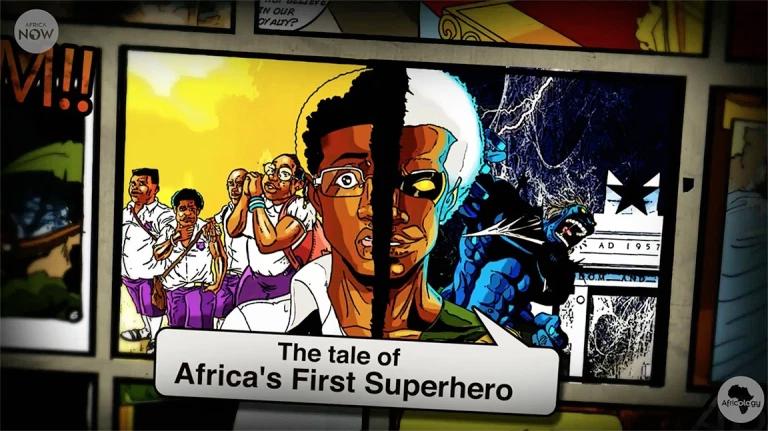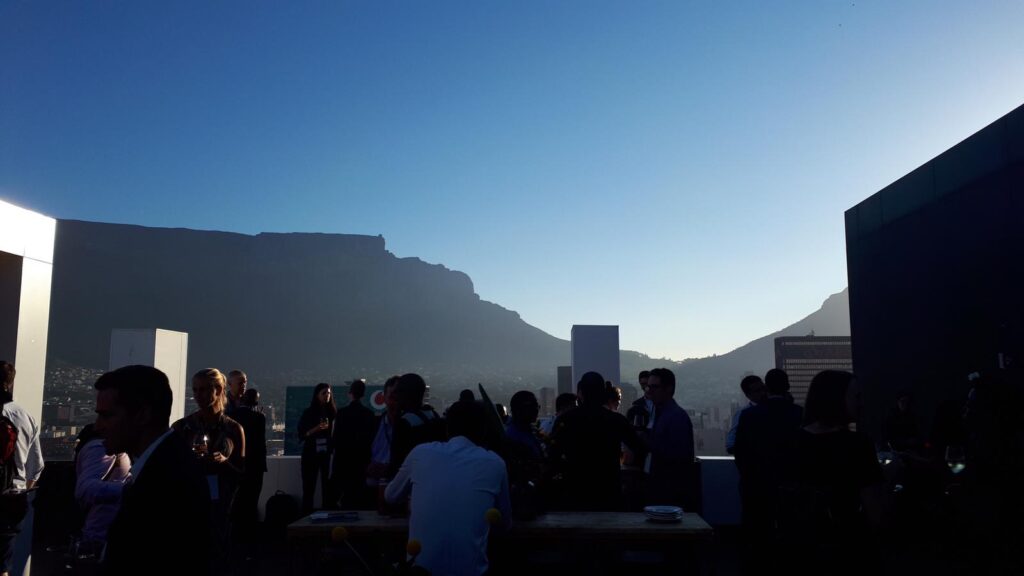I interview Tessa on finding her passion and navigating change
The experience everyone has doing a PhD is completely different, depending on their background, their thesis, and their personality. No two Doctoral Researchers will navigate the challenges and opportunities that a PhD provides in the same way. I came back to academia after five years working in marketing, I went to a university in the same country I was born in and I am gaining a PhD in English Literature focusing on queer romance novels of the 21st century.
In contrast, Tessa Pijnaker was born in the Netherlands and moved to the UK in 2017 to commence a PhD in African Studies and Anthropology at the University of Birmingham. She is funded by the Midlands4Cities (M4C) Doctoral Training Partnership and her official thesis title is ‘Styling Success: ICT, design and public performance among technology entrepreneurs in Accra, Ghana’. In layman’s terms, her thesis is looking at how tech entrepreneurs try to achieve success and social mobility, through self-styling and the design of their products in the tech industry in Accra, Ghana in West Africa.
She is currently in the Netherlands under quarantine but continuing to work on her thesis remotely, like many Doctoral Researchers at the moment. I thought it would be interesting to sit down and talk with her about her experience of doing a PhD, particularly as it is so different from my own.
The interview
Lucy
“What made you want to do a PhD?”
Tessa
“When I started my undergraduate degree in History, I initially wanted to do a PhD for what I now consider to be quite superficial reasons. I liked the idea of leaving something behind in the form of a book or articles, and wanted the status and prestige. I was also just good at History – I got good grades. However, during my Research Masters in History, I had a crisis of confidence; I struggled to find a topic I really liked and getting acknowledgement from others proved to be an unsustainable motivator for me. For a while, I considered not doing a PhD.
Eventually, I switched from History to Anthropology. I did a two-year Research Masters in Social Sciences and changed from a two-year to a one-year Masters in History. Whilst studying History, I always chose topics that interested my professors. Whereas with Anthropology, I consciously chose a thesis that was close to my heart and interested me. I wanted to do something on colonial history, technology, and something about video games or comics because that was something I liked growing up.
I did some research and found an advertisement for a Ghanaian company called Leti Arts that make comics and videos about African superheroes. These superheroes were all inspired by African History and Folklore. For instance they developed an ‘African Spiderman’, inspired by Anansi, a cunning spider trickster god. This spoke to me because I had always liked Spiderman growing up – he’s still one of my favourite superheroes – and I liked that it had this post-colonial vibe to it. I went to Ghana and did my field research at this company. They were a start-up funded by an incubator. An incubator is a place where a business or foundation tries to increase the development of other start-ups.

I enjoyed the fieldwork for my Masters a lot so I wanted to continue this for my PhD, especially as I noticed power imbalances within the start-up industry that I felt deserved attention. This was my motivation for doing a PhD in the end, alongside my passion for the subject and the contribution I felt I could make with my research to society.”
Lucy
“Why did you want to do a PhD in the UK?”
Tessa
“Ever since my undergraduate degree, I always thought I would do a PhD in the UK, but I don’t know where that idea came from. It was just a feeling. At first, I applied for funding in the Netherlands. Application procedures for independent research in the Netherlands take about a year and are extremely competitive. In the years before I applied, there had only been one scholarship awarded to an anthropologist across the Netherlands and usually, it was given to a medical anthropologist as they prefer research with clear practical value. So when I got rejected, I started looking at PhDs in the UK. Birmingham sparked my interest because my research fitted very well within the department and because the M4C was offering very generous funding.”
Lucy
“How did you find the transition from the Netherlands to the UK?”
Tessa
“In the Netherlands, students are highly encouraged to study abroad. Generally, it is framed as a very positive experience, so that is what I prepared myself for. But in all honesty, I found it fairly tough to cope with so many big life changes at the same time. If they had occurred one by one it would have been okay I think, but in a fifty minute plane ride everything changed. I moved house, I started living with new people, I started a new phase in my career, I would not be able to see my friends and family as often, I could not do the sport I loved anymore. The food was more different than I had imagined. The academic system was also different, and there were different cultural practices and a different language of course. My English was okay before coming to the UK, but it isn’t the same as being a native speaker. Cultural references and jokes are really hard to learn when you haven’t grown up in the country, so initially when trying to make friends with British students I often felt a bit lost.
About a year into my PhD, after having adjusted a bit more to all the changes, I found out what I struggled with most was the position of a PhD student in the British academic system compared to the Netherlands. In the Netherlands, a PhD is viewed as a job. So, the university considers you their employee and pays you a wage, usually starting at about €2,200 in your first year, and you receive a pension and so on. In contrast, the British system views doing a PhD as a student position. Whilst I was aware of this difference from the start, I had not realised how much it would influence my position. As a PhD researcher in the Netherlands, you become part of a community of lecturers, professors, teaching assistants and PhDs. Whereas in my experience in my department in Birmingham, PhD researchers are part of the student hierarchy rather than part of the staff hierarchy.”
Lucy
“What has been your favourite part of the PhD so far?”
Tessa
“There are several things. Firstly, you have a lot of freedom to explore your interests and be creative about what you are passionate about. For example, in my first year, I ran a blog about African superheroes and it was nice that I could do that and that I get paid to pursue my interests, which is quite a privilege.
Also in my case, my PhD involved a fair bit of travel, which I realise is not an opportunity that everyone gets. The M4C has generously funded my travel to Ghana and South Africa for research and has also sponsored my attendance at several conferences. I’ve been able to experience things I wouldn’t otherwise be able to do. For example, thanks to M4C funding, I got to attend an Investor Summit in South Africa with all these multi-millionaires investing in tech start-ups in Africa. As part of the summit, I found myself eating luxurious five-course dinners and drinking fancy cocktails with my research participants at the top of skyscrapers in Cape Town. This isn’t something I would have had the opportunity to do otherwise.

I love meeting new people, and I’ve gained a really wide network of individuals from academia, various governments, tech start-ups, investors, and NGOs. I’ve been able to bring some of these people together and that has been rewarding.”
Lucy
“What have you found most challenging about doing the PhD?”
Tessa
“Because you have so much time, you have to be disciplined. Don’t do a PhD if you don’t love the subject because that is the only thing that will keep you going some days. It can be quite lonely. Doing an anthropological project meant I did one year in the UK, one year in Ghana, and then another year in the UK. It makes it hard to maintain a social network because you are constantly being uprooted. It is emotionally draining. Due to the amount of travel that is fairly typical for a PhD researcher in my department, I think it is important for the department to foster a greater sense of community. I think it would have been beneficial to my research progress if there was a group of colleagues or peers supporting each other when conducting fieldwork and when returning from fieldwork and settling back into university life.
Lucy
“What does a typical day look like for you as a PhD researcher?”
Tessa
“I feel it is important to differentiate between the different years of a PhD. In my first year, I would spend lots of time reading and writing. I would spend three or four weeks reading about a certain theme important to my research and then spend a week writing about it.
During my second year, I was doing fieldwork in Ghana. The level of access my gatekeepers and participants gave me would for the most part dictate my days. Some days I would be at my house in Accra writing but most of the time I would be out and about. I could be attending a training session for entrepreneurs or at a tech event and then the next day I would do an in-depth life history interview with one of the entrepreneurs participating in my study, listening to how he had been struggling because entrepreneurship didn’t bring him the success he had hoped for.
During my third year, I’m processing all my fieldwork data, which involves lots of listening, writing and reading. If it wasn’t for Covid-19, I would be presenting my research at conferences. I’m currently working on a collaborative article with two other postgraduate researchers. A typical day also depends on the university and whether anthropology is a collaborative or solo research experience. At the University of Birmingham, it is a fairly small department which makes it difficult to collaborate on research. I do try to have collaborations but this is mainly self-motivated.”
Lucy
“What is one piece of advice you would give to future PhD candidates?”
Tessa
“I think it is important, especially for anthropologists doing fieldwork, to stick up for yourself and protect your boundaries. Don’t accept things that will cause harm to yourself or others, such as doing fieldwork in an unsafe environment. Anthropologists are taught to ‘immerse’ themselves in the field, to become embedded and be culturally sensitive, but that does not mean you should accept harmful behaviour. Know your obligations, but also know your rights.”
Lucy
“Last question, what is one place you think people should visit when they come to Birmingham?”
Tessa
“I really like Sutton Coldfield, in particular Sutton Park. There are a handful of restaurants in the park and one of them offers a cheap but tasty Sunday Roast. Plus, you can have a lovely walk in nature so it’s great if you want to escape the city and just get away for a while.”
Lucy
“Thank you Tessa for taking the time to talk me, hopefully this has been useful for any future or current PhD researchers.”
If you have any questions for myself or Tessa feel free to message me on Instagram @phdlifewithlucy
Lucy
